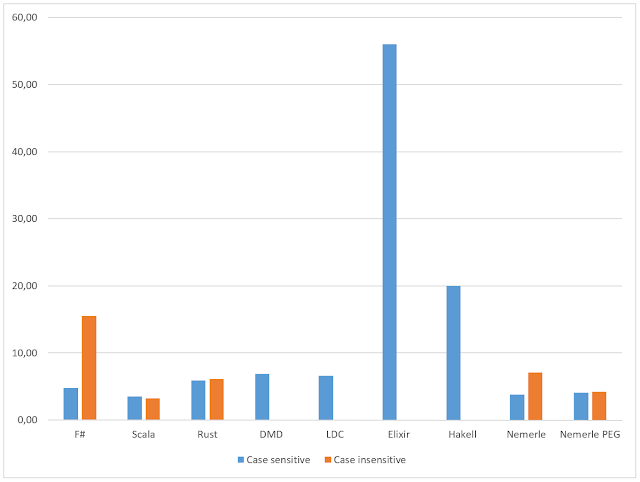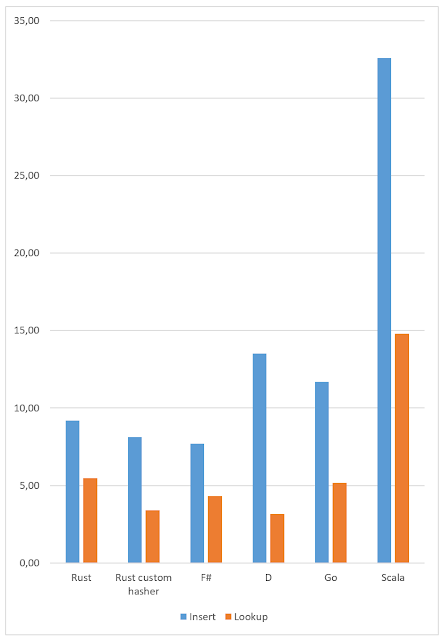Now, F#
OK, let's look at Fibonacci in F#:
It took 4 seconds compiled as debug (and 3 seconds compiled as release). Very, very impressive, I must say. The code looks as clean as Erlang equivalent, however pattern matching in Erlang is obviously more power - it supports matching function arguments and binding variables right in the patterns. However, this is the very first day I learn F#, so I may be mistaken about its pattern matching features. If this is the case, I'll sure update this post later.
Update 21.06.15
Result: 1.38 seconds in Release configuration.
It took 4 seconds compiled as debug (and 3 seconds compiled as release). Very, very impressive, I must say. The code looks as clean as Erlang equivalent, however pattern matching in Erlang is obviously more power - it supports matching function arguments and binding variables right in the patterns. However, this is the very first day I learn F#, so I may be mistaken about its pattern matching features. If this is the case, I'll sure update this post later.
Update 21.06.15



Comments